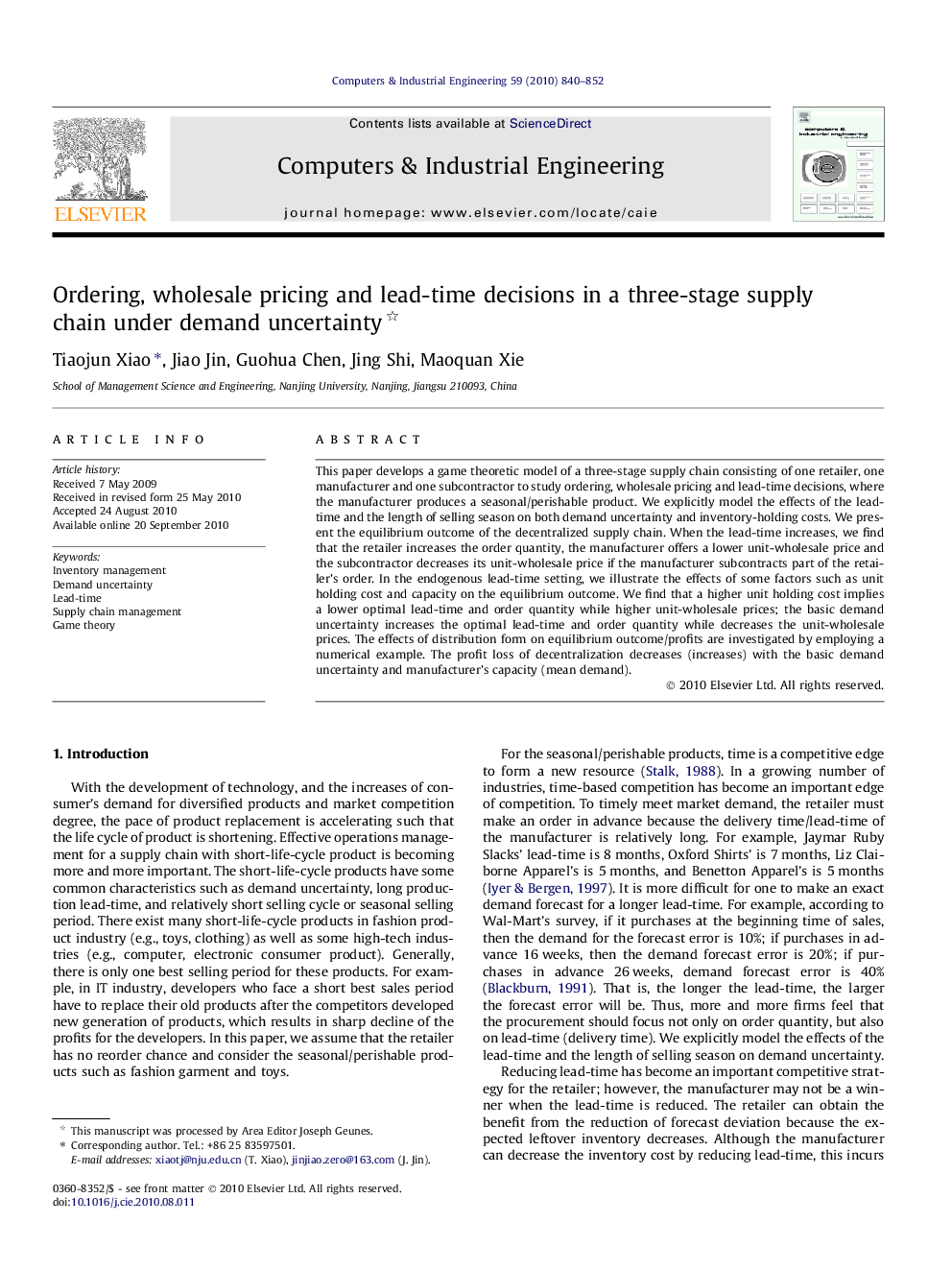| Article ID | Journal | Published Year | Pages | File Type |
|---|---|---|---|---|
| 1134736 | Computers & Industrial Engineering | 2010 | 13 Pages |
This paper develops a game theoretic model of a three-stage supply chain consisting of one retailer, one manufacturer and one subcontractor to study ordering, wholesale pricing and lead-time decisions, where the manufacturer produces a seasonal/perishable product. We explicitly model the effects of the lead-time and the length of selling season on both demand uncertainty and inventory-holding costs. We present the equilibrium outcome of the decentralized supply chain. When the lead-time increases, we find that the retailer increases the order quantity, the manufacturer offers a lower unit-wholesale price and the subcontractor decreases its unit-wholesale price if the manufacturer subcontracts part of the retailer’s order. In the endogenous lead-time setting, we illustrate the effects of some factors such as unit holding cost and capacity on the equilibrium outcome. We find that a higher unit holding cost implies a lower optimal lead-time and order quantity while higher unit-wholesale prices; the basic demand uncertainty increases the optimal lead-time and order quantity while decreases the unit-wholesale prices. The effects of distribution form on equilibrium outcome/profits are investigated by employing a numerical example. The profit loss of decentralization decreases (increases) with the basic demand uncertainty and manufacturer’s capacity (mean demand).
